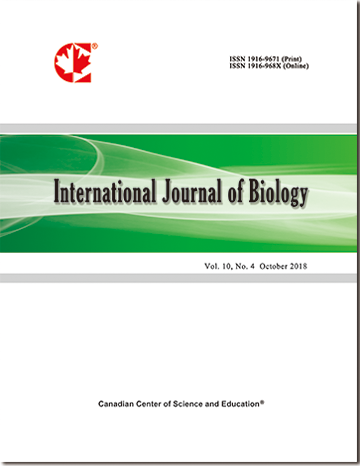Stochastic Food Deprivation has no Effect on Cellular Immunity in the Striped Field Mouse (Apodemus agrarius)
- De-Li Xu
- Shi-Jia Bi
- Xiao-Kai Hu
- Kai-Yue Zhang
- Ying-Jie Lu
- Dan Li
- Liu-Hong Wang
- Cong-Min Yao
- Shan-Shan Wang
- Qi Guo
Abstract
Immune system protects animals from the attack of pathogens, which is crucial to their survival and fitness. Small mammals in the temperate area are confronted with unpredictable food shortage frequently due to the fluctuation of food resources seasonally. Our previous research has shown that stochastic food deprivation (FD) increases T cell-mediated immunity in Kunming mice. In the present study, we tested the hypothesis that stochastic food deprivation would also increase T cell-mediated immunity in the striped field mouse. Nine female striped field mouse were randomly divided into the Fed (n = 5) and FD (n = 4) groups, in which the latter were subjected to stochastic FD regime. Contrary to our expectation, stochastic food deprivation had no significant effect on phytohaemagglutinin (PHA) response indicative of T cell-mediated immunity in striped field mouse compared with the fed controls. Moreover, body mass, body fat mass, wet thymus and spleen mass, white blood cells and blood glucose levels did not differ between the Fed and FD groups. Taken together, the striped field mouse could maintain stable cellular immunity in face of unpredictable food shortage.
- Full Text:
 PDF
PDF
- DOI:10.5539/ijb.v8n2p58
Index
- ACNP
- AGRICOLA
- BASE (Bielefeld Academic Search Engine)
- CAB Abstracts
- CiteFactor
- CNKI Scholar
- CrossRef
- DTU Library
- Elektronische Zeitschriftenbibliothek (EZB)
- Excellence in Research for Australia (ERA)
- Google Scholar
- Infotrieve
- LIVIVO (ZB MED)
- LOCKSS
- Max Planck Institutes
- MIAR
- PKP Open Archives Harvester
- Qualis/CAPES
- ResearchGate
- ROAD
- SafetyLit
- SHERPA/RoMEO
- Technische Informationsbibliothek (TIB)
- Universe Digital Library
- WorldCat
Contact
- Ryan JonesEditorial Assistant
- ijb@ccsenet.org
